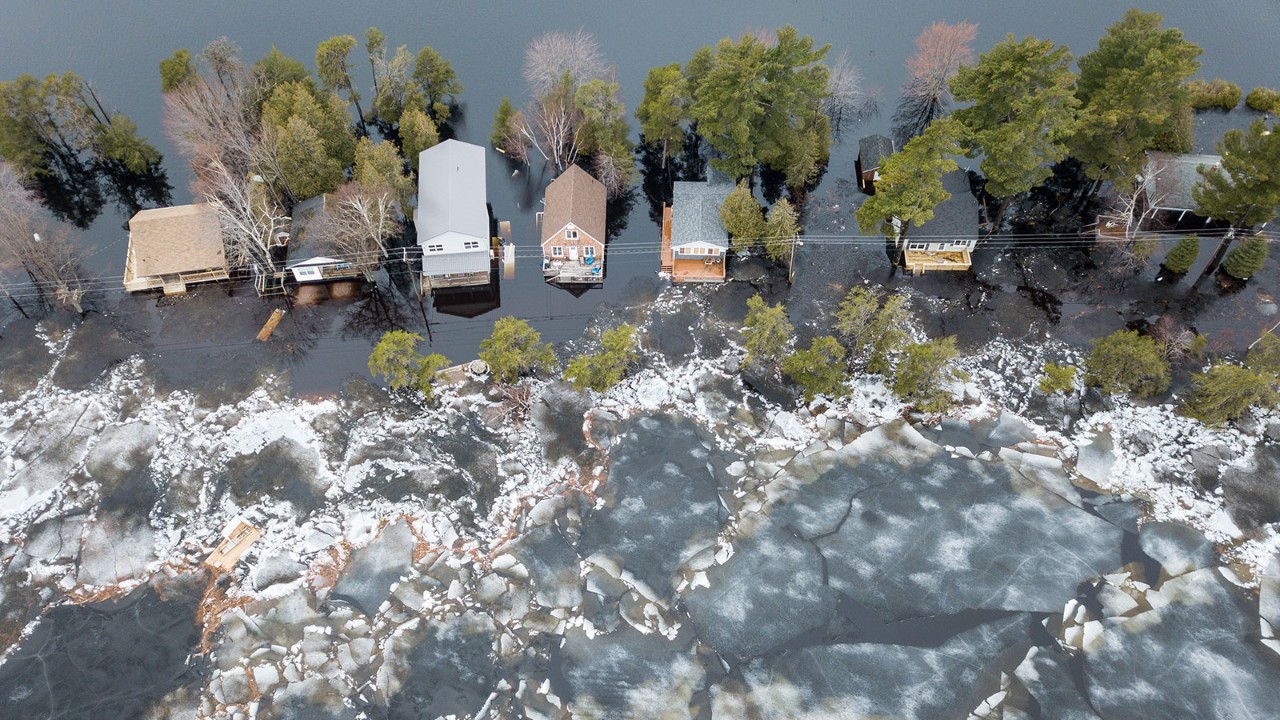
Rising global temperatures means that many countries in the Americas have seen their weather change for the worse, and rapidly.
‘Here in St Lucia,’ said one participant in ACCA’s COP 26 roundtable for the region, ‘we are thinking of extending the designated hurricane season, because the number of extreme weather events is rising.’
Not only do extreme weather events cause untold damage to islands such as Barbados, and Trinidad and Tobago, but they deplete the region’s financial resources – resources that could otherwise be available to invest in resilient infrastructure.
Africa
CFOs and standard-setters in Africa discuss concerns about the continent’s unique climate challenges
‘Sustainability is not a consideration at the moment, only survival’
Asia Pacific
Asia-Pacific climate roundtable gets real about net-zero commitments in a warming world
Europe
How the EU sees its role in the drive for a single global set of sustainability standards
India
ACCA India’s COP 26 roundtable says now is the time for mitigation and adaptation
Ireland
Participants in Ireland’s COP 26 conference highlight urgent need for accountants to lead on sustainability
More incentives needed
Many participants described the costs of tackling climate change as prohibitive. ‘Barbados is a small developing country,’ said one. ‘It’s a challenge for businesses to come up with the cash to invest in green solutions like solar panels, when the direct benefit to their business may be years away.’
Another participant agreed, saying that while there had been tax incentives for using renewable energy in Trinidad and Tobago for around 10 years, few companies had taken advantage of the offer. ‘We are a risk-averse territory; we don’t have the resources to invest and test things like this. We would prefer to wait and see.’
Some argued that more stringent or specific legislation and better incentives for small businesses would be required for many countries in the region to start factoring sustainability into their decision-making. ‘Especially after Covid-19,’ argued one member, ‘many businesses were brought to the brink of bankruptcy. Sustainability is not a consideration at the moment, only survival.’
Scope 3 challenge
Despite the generally complicated picture, there are some businesses making efforts to change. The CFO of an ocean leisure business described how the company was approaching sustainability from the perspective of community activists while attempting to change aspects of its product development to incorporate more sustainable materials.
‘Since we’re an ocean leisure company, we’re committed to raising awareness about the condition of the sea. So we organise beach clean-ups at a local level. At a global level we’ve replaced the oil-based neoprene in our wetsuits with more sustainable fabrics, and we’re looking at packaging too, trying to eradicate plastic.’
But the same CFO raised concerns about the difficulty of accurately measuring impact. ‘I’m a true accountant – I believe that when you measure things, they tend to get better! But it’s a challenge to measure your true carbon footprint. You need experts. Scope 3 emissions [those from a reporting company’s supply chain] are a real challenge.’
Activism catalyst
There was substantial agreement among participants that activism in civil society was missing, particularly in the island states. ‘Much of our economy is based on tourism, and a huge portion of our carbon footprint is down to the airline and hotels industries,’ said one.
Activism in these areas could have significant short-term effects on the local economies. Similarly, countries like Trinidad and Tobago use cheap oil and gas to attract factories to the region. Crackdowns on greenhouse gas emissions could mean the region loses jobs. There are very real, painful consequences for some countries in the region, since companies may simply shift production elsewhere rather than invest in greening technologies.
‘Many in the supply chain don’t have the money to go net zero, so you have to invest in them, hold their hand’
A financial planning and analysis manager from the Canadian legal cannabis industry illustrated how the uneven distribution of wealth among countries in the Americas meant others in richer countries were in a better position to tackle sustainability issues.
‘Organic, premium cannabis requires a lot of light, a lot of water. But we are in a position to consider these challenges at a strategic level. Going net zero means thinking about these things from the very beginning, rather than thinking about them on a short-term basis.’
She went on to describe how the company used hydropower for its 24/7 greenhouse and had built a closed-loop system for its water use. ‘If we need to hire or build equipment, we think about sustainability from the start and invest so that we acquire the right solution for our needs and one that meets our sustainability goals.’
Other participants agreed that the idea of business risk was a key catalyst for companies taking up the sustainability agenda. But one added that it was impossible to do it alone. ‘You have to bring your supply chain with you. Many in the supply chain don’t have the money to go net zero. So you have to invest in them, hold their hand, and then hopefully customers will reward the business for making the effort.’
Transparency at all levels
Others argued that the region needed greater transparency in order to progress. ‘Accountants have an important role to play here,’ said one. ‘We are the communicators of insights into the data. But we need more transparency at both company and national levels.’
Another participant added that transparency might help generate some much needed investor activism. ‘Investor activism and action from civil society can help plug gaps where regulators won’t step in. Businesses can make any kind of commitment, but it is up to these groups to hold them to account.’
But ultimately, participants were clear on what would force change. ‘The government needs to offer more incentives and more support, particularly to smaller businesses. And they need to legislate too, otherwise companies under stress are always going to gravitate towards the cheaper option – being unsustainable.’
Further information
Keep up-to-date with sustainability-related issues with our curated selection of resources.
Middle East
Three roundtables with representatives from across the Middle East region discuss climate urgency, optimism and room for improvement
UK
COP 26 roundtable discusses UK members’ views of sustainability and superhero accountants


